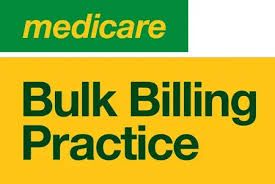TAGLINE HERE
Diabetes Clinic
What is Diabetes?
Diabetes is a chronic medical condition that affects how your body processes glucose (sugar), the primary energy source for your cells. Glucose comes from the foods you eat and needs to enter your cells with the help of insulin, a hormone produced by the pancreas. Diabetes occurs when there are problems with insulin production or its effectiveness in regulating blood sugar levels, leading to elevated blood glucose levels.
What is a Diabetes Clinic?
A Diabetes Clinic is a specialised healthcare service focused on the prevention, diagnosis, treatment, and ongoing management of diabetes. These clinics support people with Type 1 Diabetes, Type 2 Diabetes, gestational diabetes, and other diabetes-related conditions. The goal is to help patients effectively manage their blood sugar levels, reduce complications, and improve their quality of life.
Clinics are usually run by a team of professionals that may include general practitioners, endocrinologists, diabetes educators, dietitians, nurses, and sometimes podiatrists, eye specialists, and mental health professionals.
Who is Suitable for a Diabetes Clinic?
Anyone diagnosed with or at risk of developing diabetes can benefit from attending a Diabetes Clinic. This includes:
- Newly diagnosed individuals: To learn how to manage the condition early.
- People with long-standing diabetes: For regular check-ups, adjustments to their treatment plan, or help managing complications.
- People with pre-diabetes: To prevent progression to Type 2 Diabetes through lifestyle advice.
- Pregnant women: Who have or develop gestational diabetes during pregnancy.
- Individuals with complications: Such as kidney problems, nerve damage, or eye issues.
Benefits of Attending a Diabetes Clinic
- Personalised care: Each person receives a plan tailored to their lifestyle, diet, age, and health condition.
- Early detection of complications: Regular screenings can catch issues before they become serious.
- Education and empowerment: Patients learn how to monitor their blood sugar, eat appropriately, exercise safely, and manage medications.
- Multidisciplinary approach: Access to a team of health professionals in one place saves time and improves communication.
- Better long-term outcomes: Clinics help lower the risk of stroke, heart attack, kidney failure, vision loss, and foot amputations.
Types of Services Offered in a Diabetes Clinic
- Blood Sugar Monitoring & Management: Including use of glucose meters, CGMs (Continuous Glucose Monitors), and insulin pumps.
- Medication Management: Help with insulin therapy, oral medications, and new injectable options.
- Dietary Advice: Customised meal planning, carbohydrate counting, and weight management support.
- Exercise Planning: Guidance on safe and effective physical activity.
- Complication Screening:
- Eye checks (retinopathy)
- Foot exams (neuropathy and circulation)
- Kidney function tests
- Cardiovascular risk assessments
- Mental Health Support: Managing diabetes can be emotionally challenging. Clinics may offer access to psychologists or counsellors.
- Group Education Sessions: Diabetes self-management programs, including workshops for lifestyle change.
- Technology Support: Education on insulin pumps, apps, and wearable devices.
What Happens During a Diabetes Clinic Visit?
Your first visit usually includes:
- Assessment: A thorough review of your medical history, symptoms, medications, and lifestyle.
- Tests: You may have blood tests (e.g. HbA1c), blood pressure checks, and possibly eye or foot screening.
- Plan Creation: The team collaborates with you to develop a comprehensive management plan that encompasses diet, medication, activity, and monitoring.
- Education: Time is spent explaining how diabetes works, how your treatment helps, and what you can do at home.
Follow-up visits focus on monitoring progress, adjusting treatment as needed, and supporting self-management.
What to Expect After Attending a Diabetes Clinic?
- Ongoing Support: Clinics offer follow-up appointments every few months to monitor your health and provide ongoing care.
- Improved Control: You’ll often notice better blood sugar readings, weight changes, or more stable energy levels.
- Confidence and Knowledge: Many patients feel more in control and less overwhelmed about their condition.
- Health Improvements: Better cholesterol, blood pressure, and overall well-being with fewer complications.
What are the Risks if Diabetes is Not Managed Well?
Uncontrolled diabetes can lead to serious and life-threatening problems:
- Short-term risks:
- Hypoglycaemia (low blood sugar)
- Hyperglycaemia (high blood sugar)
- Diabetic ketoacidosis (in Type 1 Diabetes)
- Long-term risks:
- Heart attack and stroke
- Kidney failure
- Eye damage and blindness
- Nerve damage leading to numbness or foot ulcers
- Poor wound healing and infection
Diabetes Clinics aim to prevent these by offering consistent monitoring and support.
What if You Delay Visiting a Diabetes Clinic?
Delaying care may result in:
- Late diagnosis: Missing the window for early lifestyle-based interventions.
- Complications: More advanced kidney, eye, or nerve damage that may be harder to reverse.
- Hospitalisations: Unmanaged diabetes can lead to emergencies.
- Mental stress: Living with untreated symptoms and confusion about what to do.
It's crucial to manage diabetes through proper medical care, lifestyle changes, and medications, if necessary, to prevent or minimise these complications. Regular monitoring and working closely with healthcare professionals are essential for maintaining good health when living with diabetes.





